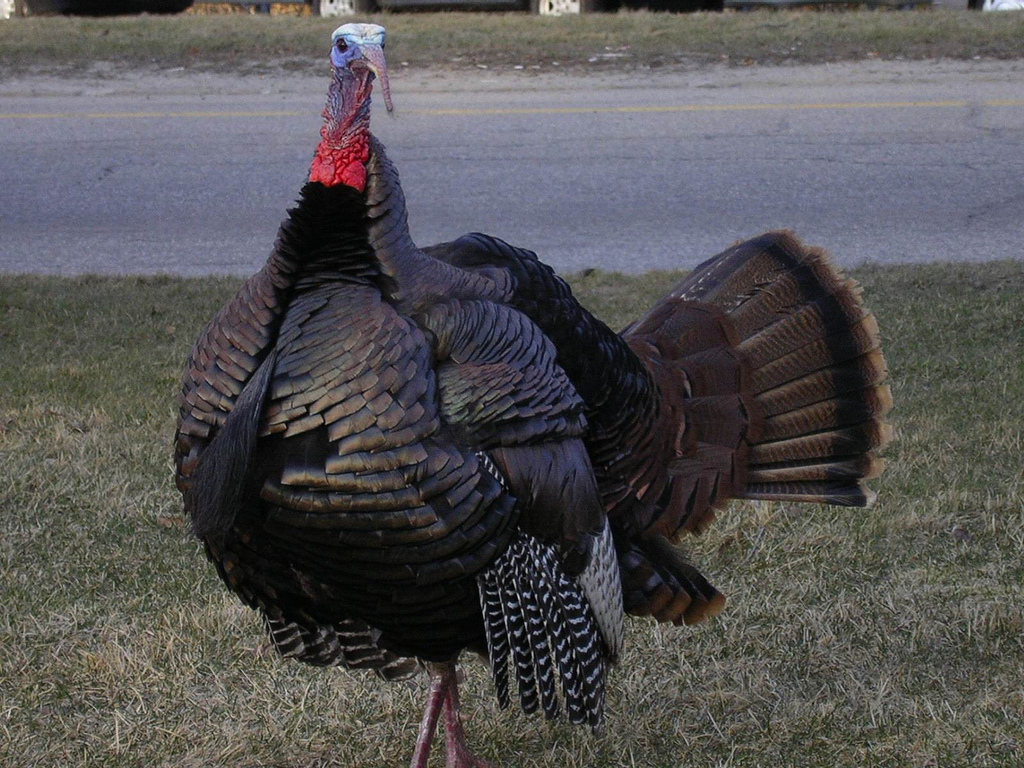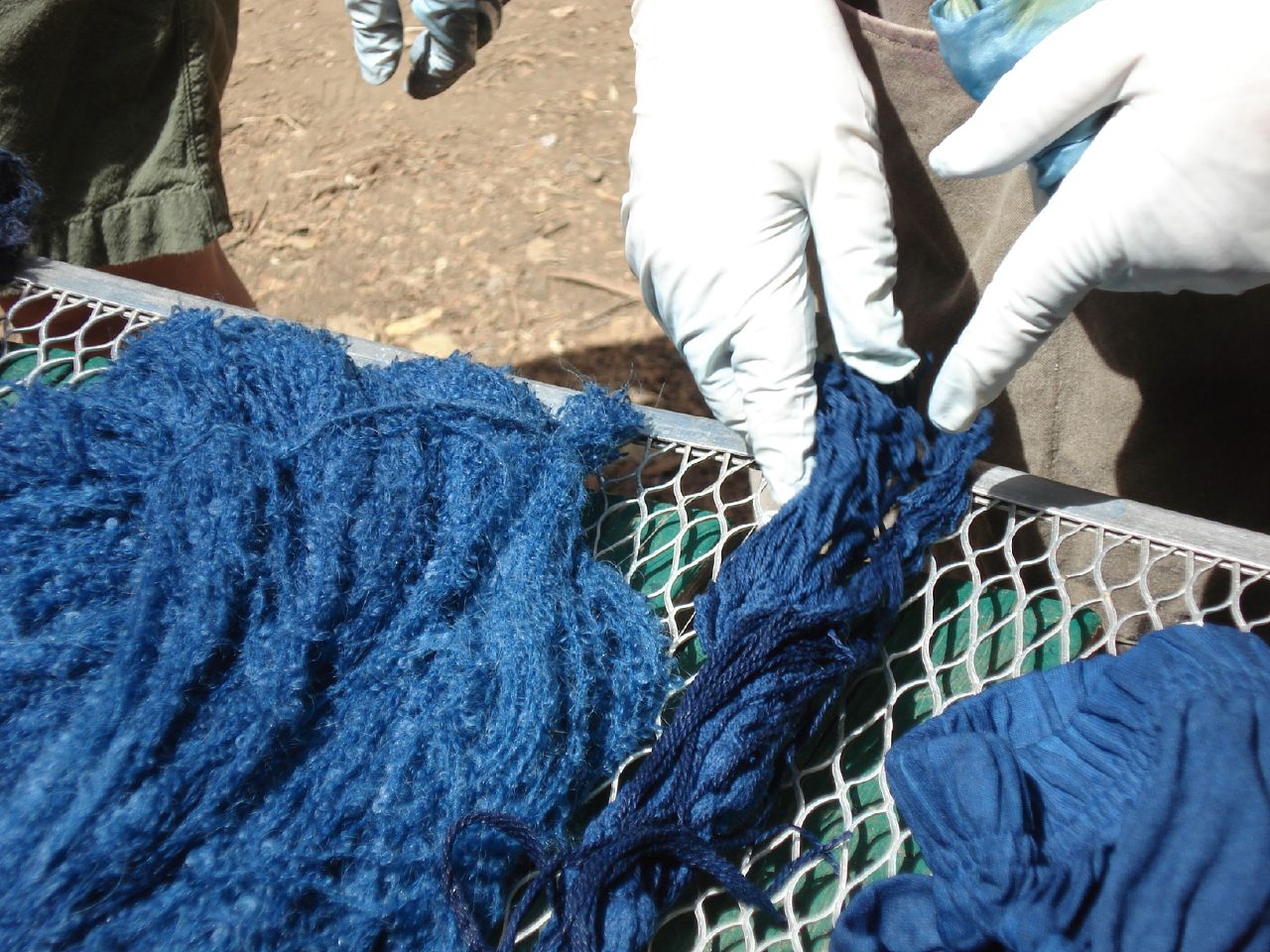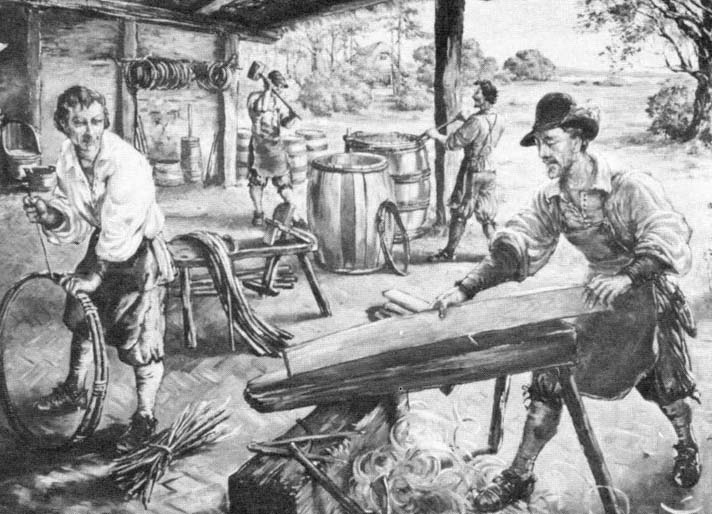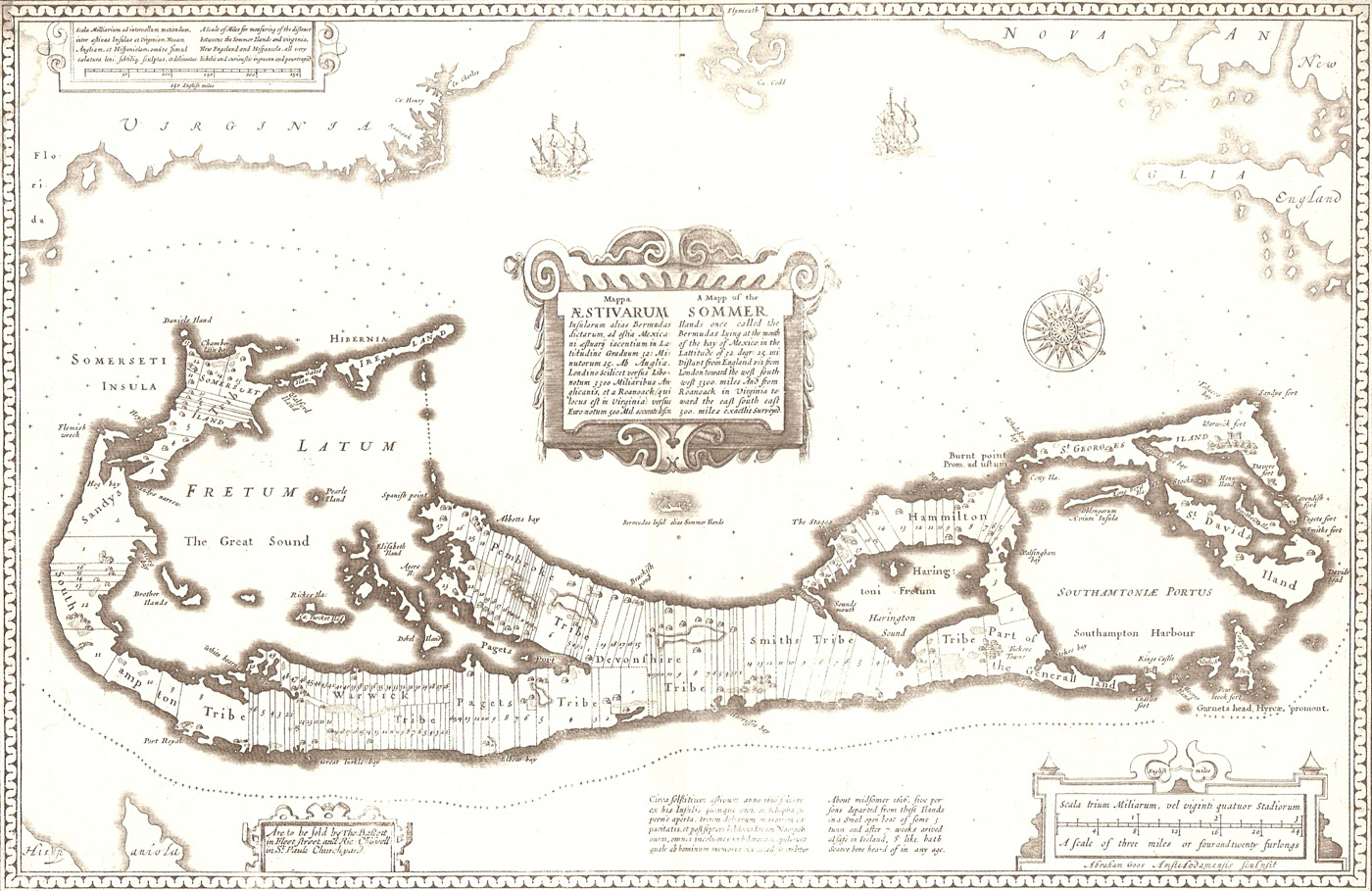Robert Horne's "A Brief Description of the Province of Carolina" is one of the earliest published descriptions of the Carolinas. Published in 1666 in London, the purpose of pamphlet was to attract English emigrants to the new colony. Horne did this by not only singing the praises of the natural features and prospects of of Carolina, but also by discussing the challenges being faced by other colonies and England itself. A transcription of the pamphlet is below.
Carolina is a fair and spacious Province on the Continent of America: so called in honour of His Sacred Majesty that now is, Charles the Second, whom God preserve; and His Majesty hath been pleas'd to grant the same to certain Honourable PersonsThe Lords Proprietors., who in order to the speedy planting"Planting" here means populating or planting the colony with settlers, just as you may see "plantation" used to refer to a colony rather than an individual farm. of the same, have granted divers privileges and advantages to such as shall transport themselves and ServantsThe author is referring to indentured servants, who could not afford their passage to America but agreed to work for a period of time, typically 7 years, for someone who paid their way. Indentured servants were "bound" to their masters and could not leave without permission. in convenient time; This Province lying so neer Virginia, and yet more Southward, enjoys the fertility and advantages thereof; and yet is so far distant, as to be freed from the inconstancy of the Weather, which is a great cause of the unhealthfulness thereofVirginia had a high death rate in the 1600s due to disease. The author blames disease on the "inconstancy of the weather" -- the changes in climate from summer to winter. In fact, much of the disease in Virginia came from shallow wells that bred bacteria and a lack of fresh fruit that led to scurvy, but Europeans in 1666 had no understanding of germs or vitamins. Many people today still blame sudden swings in temperature in fall and spring for colds and the flu, when in fact there is no scientific basis for that belief!; also, being in the latitude of the Bermudas may expect the like healthfulness which it hath hitherto enjoy'd, and doubtless there is no Plantation that ever the English went upon, in all respects so good as this: for worddefinition.though Bermudas be wonderful healthy and fruitful, yet is it but a Prison to the Inhabitants, who are much streightned for want of room, and therefore many of them are come to Carolina, and more intend to follow. There is seated in this Province two Colonies already, one on the River Roanoak (now called Albemarle River) and borders on Virginia; the Other at Cape Feare, two Degrees more Southerly; of which follows a more perticular Description...
The Perticular Description of Cape Feare.
In the midst of this fertile Province, in the Latitude of 34 degrees, there is a Colony of English seatedThat is, the colony is seated or sits at that latitude., who Landed there the 29 of May, AnnoIn the year. 1664. and are in all about 800 persons, who have overcome all the difficulties that attend the first attempts, and have cleered the way for those that come afterIn fact, because of conflict with the Cape Fear Indians and a lack of support from the Lords Proprietors, the settlers had abandoned Cape Fear by the fall of 1667. Given that the author was trying to encourage settlement, the number of 800 may have been an exaggeration., who will find good houses to be in whilst their own are in building; good forts to secure them from their enemies; and many things brought from other parts there, increasing to their no small advantage. The entrance into the River, now called Cape-Feare River Early maps labeled this part of North Carolina Promontorium Tremendum, which means "Cape Fear" in Latin, because the cape was such a hazard to sailors. The name may originally have been given by Giovanni da Verrazzano, the Italian explorer, who landed near Cape Fear in 1524., the situation of the Cape, and trending of the Land, is plainly laid down to the eye in the Map annexed. The River is barred By a sand bar or barrier island. at the entrance, but there is a Channel close abord the Cape that will convey in safety a ship of 300 Tons, and as soon as a ship is over ihe Bar, the River is 5 or 6 fathom deep for a 100 miles from the Sea; this Bar is a great security to the Colony against a forreign Invasion, the channel being hard to find by those that have not experience of it, and yet safe enough to those that know it.North Carolina has few good natural harbors, and navigating its sounds and barrier islands is so difficult and dangerous that early writers advertising the colony had to find ways of making the treacherous waters seem like a good thing for settlers -- or at least of downplaying their dangers.
The Earth, Water, and Air
The Land is of divers sorts as in all Countryes of the world, that which lyes neer the Sea, is sandy and barren, but beareth many tall Trees, which make good timber for several uses; and this sandy ground is by experienced men thought to be one cause of the healthfulness of the placeEuropeans had noticed that warm, humid climates are more likely to breed disease than cool, dry ones -- they simply didn't know why. Sandy ground bred fewer disease-carrying mosquitoes than swampy areas.: but up the River about 20 or 30 mile, where they have made a Town, called Charles-TownThis is the Charles-Town founded in the 1660s on the Cape Fear River, not the Charles Town that would become Charleston, South Carolina, which would not be founded until 1670., there is plenty of as rich ground as any in the world. It is a blackish mold upon a red sand, and under that a clay, but in some places is rich ground of a grayer colour, they have made Brick of the Clay, which proves very good; and Lime they have also for building...
The Woods are stored with Deer and Wild Turkeys, of a great magnitude, weighing many times above 50lbs a pieceAccording to the National Wild Turkey Federation, the largest wild turkey on record weighed 37 pounds. While it's possible that much bigger turkeys stalked the wilds of North Carolina in the seventeenth century, it's more likely that the author is repeating one of many fantastic rumors brought back by travelers to America. (Accurate scales would have been rare in Carolina at this time, in any case!), and of a more pleasant tast than in England, being in their proper climate; other sorts of Beasts in the Woods that are good for food; and also Fowls, whose names are not known to them. This is what they found naturally upon the place; but they have brought with them most sorts of seeds and roots of the Barbadoes which thrive very well, and they have Potatoes, and the other Roots and Herbs of Barbadoes growing and thriving with them; as also from Virginia, Bermudas, and New England, what they could afford: They have Indigo, Tobacco very good, and Cotton-woolCotton. The English had raised sheep for centuries, but cotton was relatively new to Europeans since it grows only in warm climates. Just as the term "Indian corn" distinguished maize from other kinds of "corn" or grains, "cotton-wool" reminded English readers that cotton was, in a way, a kind of wool.; Lime-trees, Orange, Lemon, and other Fruit-Trees they brought, thrive exceedingly:
They have two Crops of Indian-Corn in one year, and great increase every Crop; Apples, Pears, and other English fruit, grow there out of the planted Kernels: The Marshes and Meadows are very large from 1500 to 3000 Acres, and upwards, and are excellent food for Cattle, and will bear any Grain being prepared; some Cattle both great and small, which live well all the Winter, and keep their fat without Fodder; Hogs find so much Mast and other Food in the WoodsMast is food eaten by hogs that live in wooded areas. Mast usually consists of acorns that have fallen from trees, but can also include cherries and other tree fruits., that they want no other care than a Swine-herd to keep them from running wild. The Meadows are very proper for Rice, Rape-seed, Lin-seed, etc., and may many of them be made to overflow at pleasure with a small chargeThe streams running through the meadows can be made to overflow, that is, to irrigate fields. Rice, in particular, requires heavily irrigated fields. "At pleasure" means at the pleasure of the farmer -- as he wishes. "Charge" here means burden or price, so "with a small charge" means "without too much trouble.". Here are as brave"Brave" here means splendid or valiant -- a great, mighty river, not a river with courage. Rivers as any in the World, stored with great abundance of Sturgeon, Salmon, Bass, Plaice, Trout, and Spanish Mackrill, with many other most pleasant sorts of Fish, both flat and round, for which the English Tongue hath no name... Last of all, the Air comes to be considered, which is not the least considerable to the well being of a Plantation, for without a wholsome Air all other considerations avail nothing; and this is it which makes this Place so desireable, being seated in the most temperate Clime, where the neighbour-hood of the glorious Light of Heaven brings many advantages, and his convenient distance secures them from the Inconvenience of his scortching beams. The Summer is not too hot, and the Winter is very short and moderate, best agreeing with English Constitutions...
If therefore any industrious and ingenious persons shall be willing to pertake of the Felicity of this Country, let them imbrace the first opportunity, that they may obtain the greater advantages.
The chief of the Privileges are as follows.
- First, There is full and free Liberty of Conscience granted to all, so that no man is to be molested or called in question for matters of Religious Concern; but every one to be obedient to the Civil Government, worshipping God after their own way.
- Secondly, There is freedom from Custom, for all Wine, Silk, Raisins, Currance, Oyl, Olives, and AlmondsTo promote growth of certain crops, the Lords Proprietors exempted them from export taxes (customs or custom duties)., that shall be raised in the Province for 7. years, after 4 Ton of any of those commodities shall be imported in one Bottom.
- Thirdly, Every Free-man and Free-woman that transport themselves and Servants by the 25 of March next, being 1667. shall have for Himself, Wife, Children, and Men-servants, for each 100 Acres of Land for him and his Heirs for ever, and for every Woman-servant and Slave 50 Acres, paying at most 1/2d. per acre, per annumThis is the quitrent paid by property owners to the Lords Proprietors -- essentially, a real estate tax. The d. stands for pennies (see The value of money in colonial America), and per annum means per year., in lieu of all demands, to the Lords Proprietors: Provided always, That every Man be armed with a good Musquet full bore, 10lbs Powder, and 20lbs of Bullet, and six Months ProvisionFood. for all, to serve them whilst they raise Provision in that Countrey.
- Fourthly, Every Man-Servant at the expiration of their timeLaw and custom dictated that at the end of their term of work, indentured servants were to be given what they needed to become productive members of society. Since Carolina was an agricultural society, servants received land and tools in addition to clothing., is to have of the Country a 100 Acres of Land to him and his heirs for ever, paying only 1/2d. per Acre, per annum, and the Women 50. Acres of Land on the same conditions; their Masters also are to allow them two Suits of Apparrel and Tools such as he is best able to work with, according to the Custom of the Countrey.
- Fifthly, They are to have a Governour and Council appointed from among themselves, to see the Laws of the Assembly put in due execution; but the Governour is to rule but 3 years, and then learn to obey; also he hath no power to lay any Tax, or make or abrogate any Law, without the Consent of the Colony in their Assembly.
- Sixthly, They are to choose annually from among themselves, a certain Number of Men, according to their divisions, which constitute the General Assembly with the Governour and his Council, and have the sole power of Making Laws, and Laying Taxes for the common good when need shall require.
These are the chief and Fundamental privileges, but the Right Honourable Lords Proprietors have promised (and it is their Interest so to do) to be ready to grant what other Privileges may be found advantageous for the good, of the Colony.
Is there therefore any younger Brother who is born of Gentile bloodIn England and throughout Europe, a practice called primogeniture meant that eldest sons inherited all of their family's land. The reason for this practice was to keep family estates from shrinking by being repeatedly divided among several sons -- too small an estate wouldn't keep a family in wealth and status. Since there was no free land in Europe, younger sons traditionally became soldiers or priests. The sudden availability of free land in America meant that younger sons of genteel (here spelled "gentile") British families -- wealthy, elite families -- now had the opportunity to build estates of their own. (See Land and Work in Carolina for more about why second sons of wealthy families in Britain needed land.) Later in this paragraph, the author says that a man might become "the head of as famous a family" as he had come from. In fact, the so-called First Families of Virginia, such as the Lees and Randolphs, were founded by younger sons of well-to-do English families who moved to Virginia in the mid-1600s and founded the first Southern aristocracy., and whose Spirit is elevated above the common sort, and yet the hard usage of our Country hath not allowed suitable fortune; he will not surely be afraid to leave his Native Soil to advance his Fortunes equal to his Blood and Spirit, and so he will avoid those unlawful ways too many of our young Gentlemen take to maintain themselves according to their high education, having but small Estates; here, with a few Servants and a small Stock a great Estate may be raised, although his Birth have not entitled him to any of the Land of his Ancestors, yet his Industry may supply him so, as to make him the head of as famous a family.
Such as are here tormented with much care how to get worth to gain a Livelyhood, or that with their labour can hardly get a comfortable subsistance, shall do well to go to this place, where any man what-ever, that is but willing to take moderate pains, may be assured of a most comfortable subsistance, and be in a way to raise his fortunes far beyond what he could ever hope for in England. Let no man be troubled at the thoughts of being a Servant for 4 or 5 year, for I can assure you, that many men give mony with their children to serve 7 years, to take more pains and fare nothing so well as the Servants in this Plantation will do. Then it is to be considered, that so soon as he is out of his time, he hath Land, and Tools, and Clothes given him, and is in a way of advancement. Therefore all Artificers"Artifice" today means a lie or deception, but here "artificers" are artisans -- people who practice an art, craft, or trade such those listed here. Artisans were "of high esteem" in Carolina because their skills were badly needed., as Carpenters, Wheelrights, Joyners, Coopers, Bricklayers, Smiths, or diligent HusbandmenHusbandmen were men who practiced husbandry, the raising and breeding of crops and livestock. Essentially, they were farmers, but "husbandry" implies a more careful and thoughtful process than "farming." and Labourers, that are willing to advance their fortunes, and live in a most pleasant healthful and fruitful Country, where Artificers are of high esteem, and used with all Civility and Courtesie imaginable, may take notice, that,
There is an opportunity offers now by the Virginia Fleet, from whence Cape Feare is but 3 or 4 days sail, and then a small Stock carried to Virginia will purchase provisions at a far easier rate than to carry them from hence; also the freight of the said Provisions will be saved, and be more fresh, and there wanteth not conveyance from Virginia thither.
If any Maid or single Woman have a desire to go over, they will think themselves in the Golden Age, when Men paid a Dowry for their Wives; for if they be but Civil, and under 50 years of Age, some honest Man or other, will purchase them for their Wives.A dowry was money or goods brought to a marriage by the bride. At this time, a married woman did not share ownership of her husband's property. In fact, a married woman could not own property at all, or enter into any kind of business arrangements! Her dowry was the exception. A dowry was the woman's property, fully under her control, and it ensured that she (and her children) would have an inheritance if her husband died. The writer is suggesting that America is so abundant -- and the colony so lacking in women -- that men could afford to pay their wives' dowries, instead of expecting their wives to bring them to the marriage. He specifies women "under 50" presumably because he expects that men would want children, and therefore a woman of childbearing age.
Those that desire further advice, or Servants that would be entertained, let them repair to Mr. Matthew Wilkinson, Ironmonger, at the Sign of the Three Feathers, in Bishopsgate Street, where they may be informed when the Ships will be ready, and what they must carry with them.
Thus much was convenient to be written at present, but a more ample Relation is intended to be published in due time.
Primary Source Citation:
Horne, Robert. A Brief Description of the Province of Carolina. 1666. London. Reprinted. Samuel, Salley Alexander. Narratives of Early Carolina, 1650-1708. New York, NY: Scribner's Sons, 1911. https://catalog.hathitrust.org/Record/000197454.




